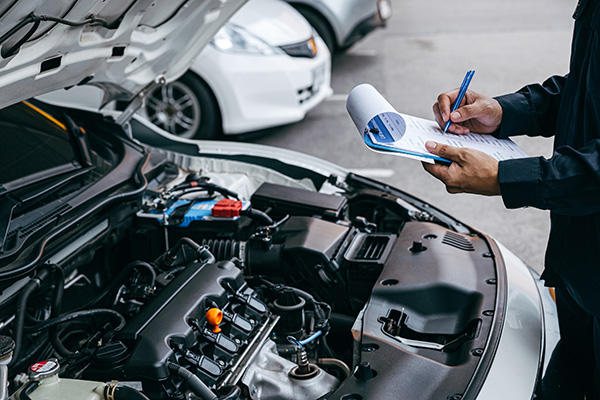
Have you ever noticed your car losing its pep over time, or maybe you're visiting the gas station more frequently than before? These are clear signs that your car might be in desperate need of a tune-up. But what exactly is a car tune-up, and how does it benefit your vehicle's performance and fuel efficiency? Let's look into the nuts and bolts of this essential maintenance task and discover why it's so crucial for keeping your car running smoothly and economically.
The Car Tune-Up Service
A car tune-up is like a wellness check for your vehicle, ensuring all critical systems are functioning at their best. It's a comprehensive service that typically involves inspecting and replacing various components to restore the car to its optimal operating condition. But why is this important? Over time, parts wear out, fluids degrade, and systems can become clogged or misaligned, leading to decreased performance and increased fuel consumption. Regular tune-ups can help mitigate these issues and keep your car running like a dream.
Key Components of a Tune-Up
1. Spark Plugs and Ignition System
Spark plugs are important in the combustion process that powers your engine. Over time, they can become fouled or worn, leading to misfires, reduced power, and poor fuel efficiency. During a tune-up, the spark plugs are inspected and replaced if necessary. The ignition system, including the distributor cap, rotor, and ignition wires, is also checked to ensure it's delivering the proper spark at the right time.
2. Air and Fuel Filters
The air filter ensures that only clean air reaches the engine, while the fuel filter ensures that the fuel is free of contaminants. Clogged filters can restrict airflow and fuel flow, making the engine work harder and consume more fuel. Replacing these filters during a tune-up helps maintain the right air-fuel mixture, promoting better combustion and improved efficiency.
3. Fluid Levels and Quality
Fluids are the lifeblood of your car's engine and various systems. During a tune-up, vital fluids such as engine oil, coolant, transmission fluid, and brake fluid are checked and topped off or replaced if they are degraded. Fresh, clean fluids ensure that all components are properly lubricated, cooled, and functioning correctly, reducing wear and tear and enhancing performance.
4. Belts and Hoses
Belts and hoses can deteriorate over time due to heat and wear. A broken belt or leaking hose can lead to significant engine problems. During a tune-up, these components are inspected for signs of cracking, fraying, or leaks and are replaced if necessary. Keeping belts and hoses in good condition ensures that your engine runs smoothly and prevents unexpected breakdowns.
How a Tune-Up Improves Performance
Optimizing Engine Efficiency
When your engine's components are in good working order, it runs more efficiently. Clean spark plugs ensure proper ignition, fresh fluids reduce friction and wear, and unclogged filters allow for optimal airflow and fuel delivery. This combined effect results in a smoother, more responsive driving experience with better acceleration and overall engine performance.
Reducing Engine Stress
Worn or faulty components force the engine to work harder, increasing stress and the likelihood of breakdowns. By addressing these issues during a tune-up, you can reduce the strain on your engine, extending its lifespan and ensuring reliable performance. An engine that's not overworked will run cooler and more consistently, providing peace of mind and reducing the risk of costly repairs.
Enhancing Fuel Efficiency
Improving Combustion
Proper combustion is key to fuel efficiency. When the air-fuel mixture is balanced and ignited correctly, the engine burns fuel more completely, extracting the maximum energy from each drop. Replacing spark plugs, filters, and ensuring the ignition system is working correctly helps achieve this optimal combustion, which translates to better fuel economy.
Minimizing Fuel Waste
Dirty or clogged components can lead to fuel wastage. For example, a clogged air filter can cause the engine to burn more fuel to compensate for reduced airflow. During a tune-up, cleaning or replacing these components ensures that the engine operates at peak efficiency, reducing fuel consumption and saving you money at the pump.
Signs That Your Car Needs a Tune-Up
- Decreased Fuel Efficiency: If you notice you're filling up your tank more often, it could be a sign that your car needs a tune-up.
- Poor Performance: Sluggish acceleration, rough idling, and engine misfires are all indicators that your vehicle is due for maintenance.
- Dashboard Warning Lights: Ignoring warning lights can lead to more significant problems down the road. A tune-up can often resolve the issues causing these alerts.
- Unusual Noises: Knocking, pinging, or grinding noises coming from your engine are never a good sign and should be checked out during a tune-up.
Ready to boost your car's performance and save on fuel? Schedule a tune-up at Lorentz Automotive today and feel the difference!